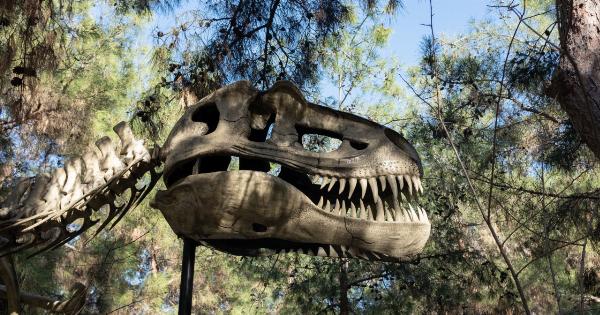Osteoporosis is a disease that weakens bones, causing them to become thin, brittle, and easily breakable. The condition is more prevalent among women than men, especially after menopause.
While genetics and physical activity levels are significant risk factors for osteoporosis, nutrition plays a crucial role in preventing or slowing down its progression.
Calcium
Calcium deficiency is one of the primary causes of osteoporosis. Bones require calcium to maintain their strength and density. Our bodies cannot produce calcium; therefore, we need to consume enough calcium-rich foods.
Dairy products like milk, cheese, and yogurt are excellent sources of calcium. Non-dairy sources of calcium include leafy greens like kale and spinach, soy products like tofu, and fish like sardines and salmon.
Vitamin D
Vitamin D aids our bodies in absorbing calcium. Even if we consume enough calcium, without sufficient vitamin D levels, our bodies cannot absorb it. Therefore, it is essential to get enough vitamin D to prevent calcium deficiency and osteoporosis.
The best source of vitamin D is exposure to sunlight. However, it can also be found naturally in foods like egg yolks and fatty fish. Fortified foods like milk, orange juice and cereal also provide vitamin D.
Protein
Protein is a key component of bone structure. It helps build and repair bones’ tissue. A diet low in protein can lead to reduced bone density and an increased risk of fractures.
High-quality protein sources are essential, like lean meats, poultry, fish, dairy products, beans, and legumes. It is also important to consume adequate protein throughout the day, rather than consuming it all during one meal.
Fruits and Vegetables
Consuming fruits and vegetables is beneficial in maintaining healthy bones due to their high content of vitamins and minerals.
Leafy greens are excellent sources of calcium, while citrus fruits like oranges and grapefruit are rich in vitamin C, which aids collagen production and helps build stronger bones. Potassium-rich fruits and vegetables can also offset the loss of calcium from bones.
Magnesium
Magnesium is essential for healthy bones because it supports the absorption of calcium and aids in building bone tissue. Magnesium-rich foods include nuts and seeds, whole grains, spinach, beans and lentils, and fatty fish like salmon.
Reduce Sodium Intake
Consuming too much sodium can cause the body to lose calcium, leading to bone loss. Therefore, it is important to reduce sodium intake and choose low-sodium alternatives.
Processed and packaged foods, canned soups, and snacks are typically high in sodium, so read labels carefully before purchasing.
Reduce Alcohol Intake
Consuming alcohol in excess can adversely affect bone density. Studies have shown that drinking more than two alcoholic drinks per day can lead to increased risk of fractures.
Limiting alcohol intake to one drink per day for women and two drinks per day for men is recommended to reduce the risk of osteoporosis.
Adequate Calories
Consuming adequate calories is important to prevent bone loss and maintain a healthy weight. Consuming too few calories can lead to malnutrition or a weight that is too low, both of which increase the risk of osteoporosis.
Exercise
While nutrition plays a crucial role in preventing osteoporosis, physical activity is also essential. Weight-bearing exercises like walking, jogging, and weightlifting help promote healthy bones by increasing bone density.
However, it is important to talk to your healthcare provider before starting any new physical activity program.































